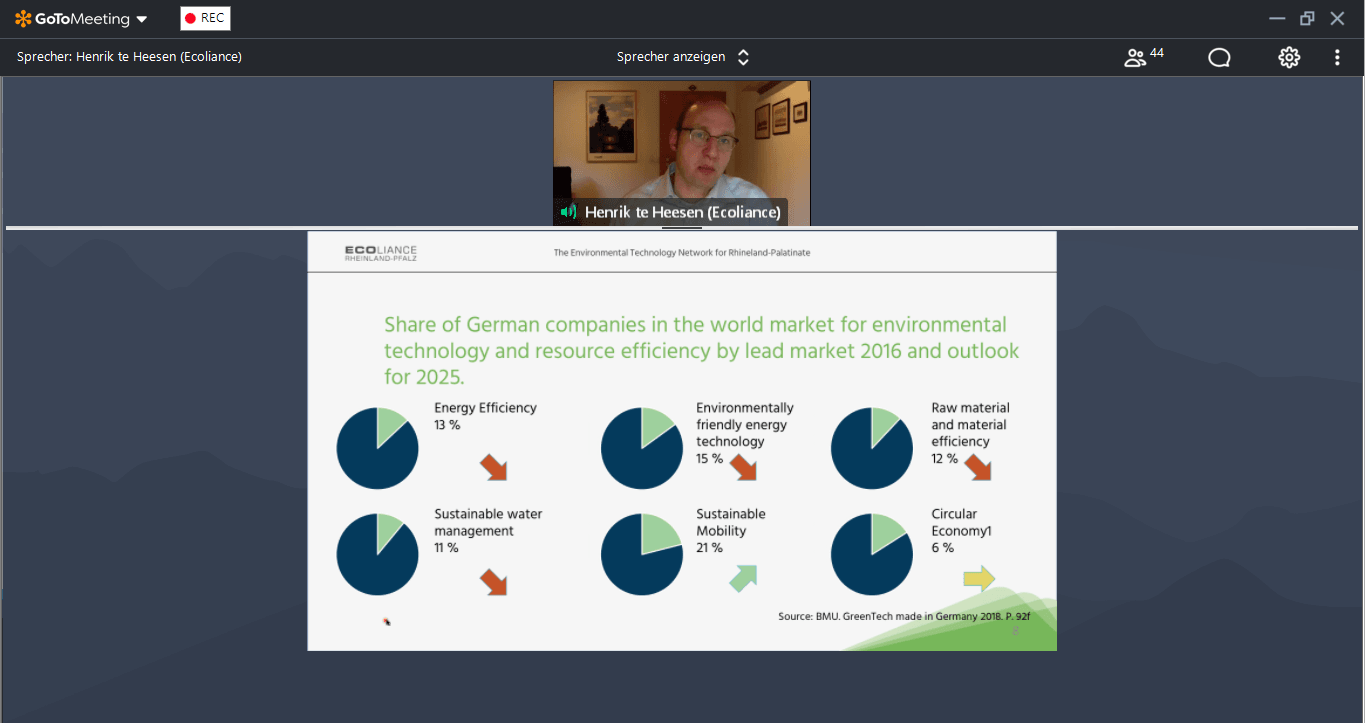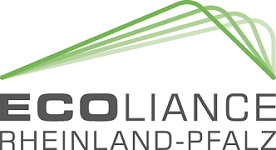Status of renewable energies in the European Union and outlook in the Recovery Plan
Since March 2020 and the beginning of the corona pandemic, the European Cluster Alliance has been organising online seminars on relevant topics for clusters during the corona virus crisis almost every day at 08:30 am. These are open to the public. The overall objective is to link and strengthen industrial ecosystems within the framework of the European Recovery Plan.
The list of previous recordings and presentations can be found here: https://www.clustercollaboration.eu/news/european-alliance-against-coronavirus-list-previous-recordings and the topics and agenda of the upcoming online seminars here: https://www.clustercollaboration.eu/event-calendar/european-alliance-against-coronavirus-daily-webinars. You can participate in the video conferences via this link: https://www.gotomeet.me/europeanclustersalliance and you can write to This email address is being protected from spambots. You need JavaScript enabled to view it. to be added to the group's mailing list.
On the 23rd September 2020, renewable energies were the topic of the online session. The Ecoliance board member, Prof. Dr. Henrik te Heesen, was invited to give a presentation on our cluster and renewable energies in Rhineland-Palatinate.
Julia Walschebauer, Policy Officer at DG ENER at the European Commission, and Bianca Dragomir, Managing Director of the Spanish cluster Avaesen for energy industry, were also invited.
A few days ago, the European Commission presented its Climate Target Plan for 2030, which aims to reduce greenhouse gas emissions by at least 55% by 2030 to become climate neutral by 2050. While the results so far are encouraging, they are not sufficient: between 2005-2018 the share of renewable energies in final energy consumption rose from 10% (2005) towards the 2020 target of 20%. Since 2005 there has been a strong increase in the use of solar and wind energy. Energy from renewable sources is mainly used for electricity (32%), heating and cooling (21%) and transport (9%).
Renewable energies face different challenges. Member States' national budgets allocated to clean energy research and development are falling. In terms of share of GDP, investment is lowest among the major global economies. Private sector investment in research and development in this area is also declining. Last but not least, patenting activity in the field of clean energy technologies has also been declining since 2012, although the European Union generally registers higher quality patents.
Wind energy, renewable hydrogen and marine energy can be seen as opportunities. Their increase is likely to lead to a change in the structure of industry. Expertise needs to be pooled across companies and Member States, and companies need to restructure and merge their value chains. European companies are among the market leaders for both hardware and software solutions in the smart grids sector. Investment must therefore be increased to maintain this competitive advantage. Investment must also be made where the European Union does not have a competitive advantage: solar photovoltaic and Li-ion batteries, for example, are particularly important because of their projected demand, modularity and spillover potential.
In the EU, 21 renewable energy industrial clusters have a bronze label, 5 have a silver label and 8 have a gold label. 27 of them are involved in cross-sectoral European cluster partnerships.
For Bianca Dragomir, renewable energies must be used to revitalise the other sectors. To do this, private investment in renewable energy must be released. Access to loans and subsidies in this sector remains difficult.
Prof. Dr. Henrik te Heesen emphasised the potential of environmental technology and resource efficiency: The global market volume amounts to 3214 billion euros in 2016 and is expected to increase to 5902 billion euros by 2025. "Energy, Environmental Technology, Resource Efficiency" is part of the 6 Smart Specialisation Strategies (S3) priorities of Rhineland-Palatinate and clusters are regarded as the basis of the innovation bridge that is to link science and industry. Clusters such as Ecoliance RLP e.V. participate in Rhineland-Palatinate's innovation strategy by establishing links with research and development institutions, bringing together partners in research and development projects, promoting knowledge and technology transfer, supporting technology-oriented start-ups and ensuring access to skilled workers. Rhineland-Palatinate's priority "Energy, Environmental Technology, Resource Efficiency" can make an important contribution to the state's economy and development. It is particularly important for the following application markets, which are also covered by Ecoliance e.V: Water treatment and waste water treatment, building technology and building energy efficiency as well as circular economy and recycling. Clusters are therefore of primary importance in the Recovery Plan and should be considered by the European Commission.

